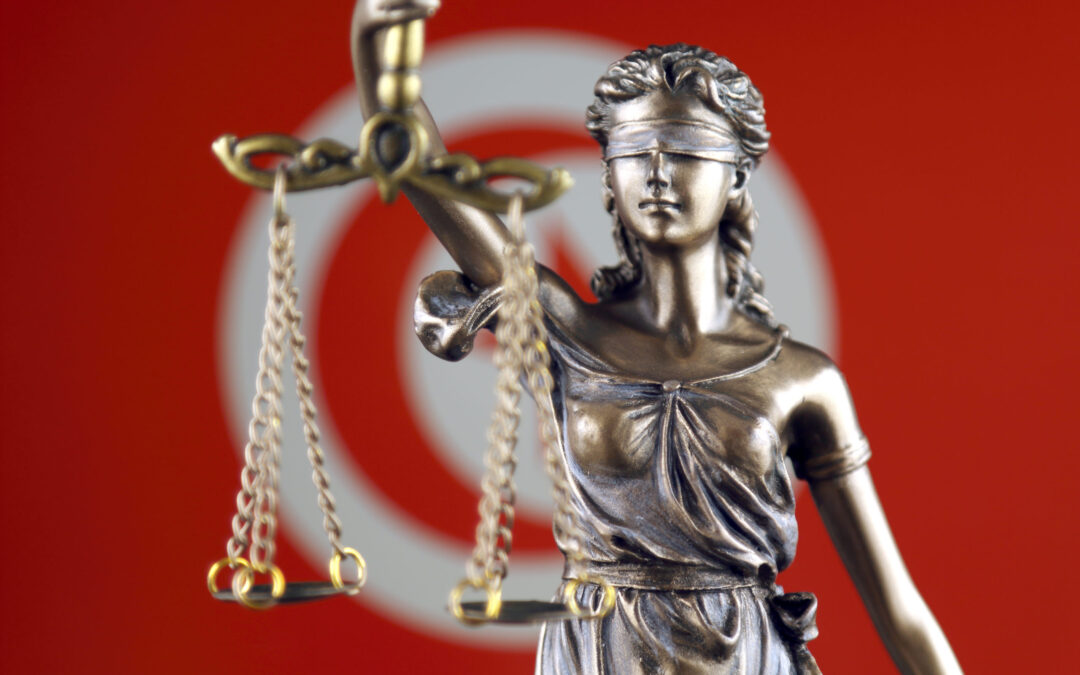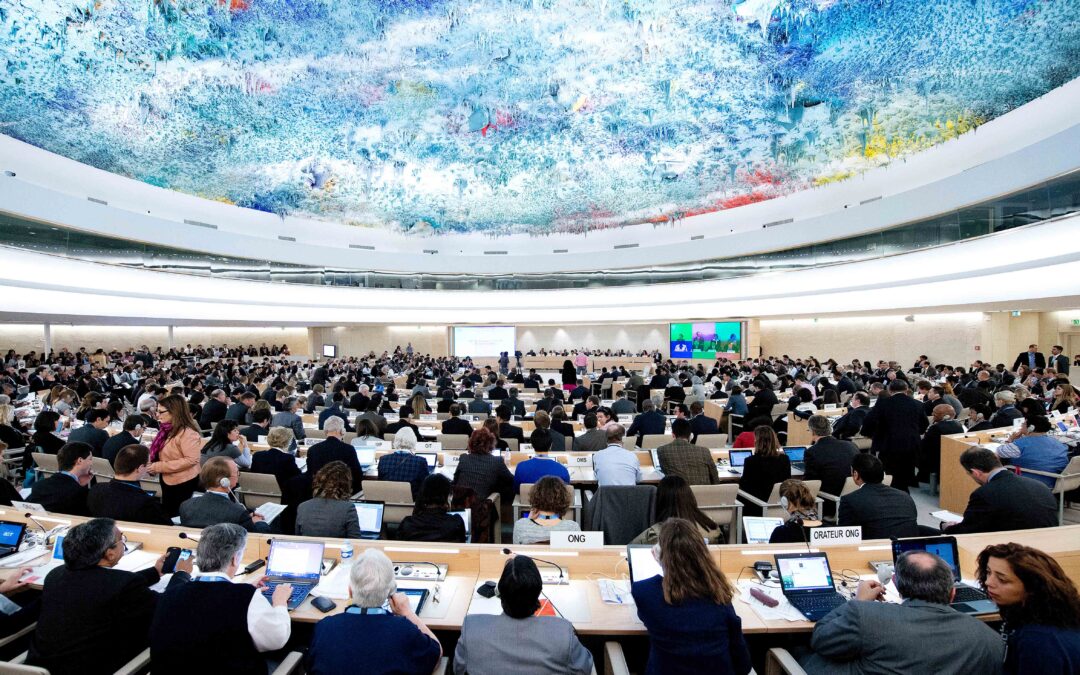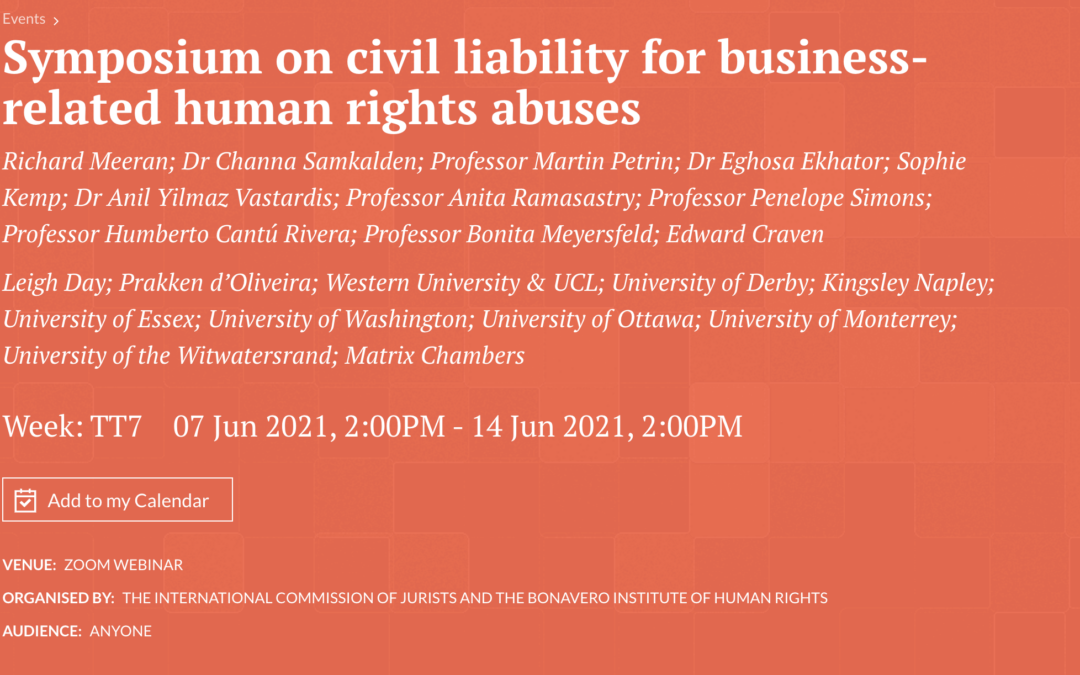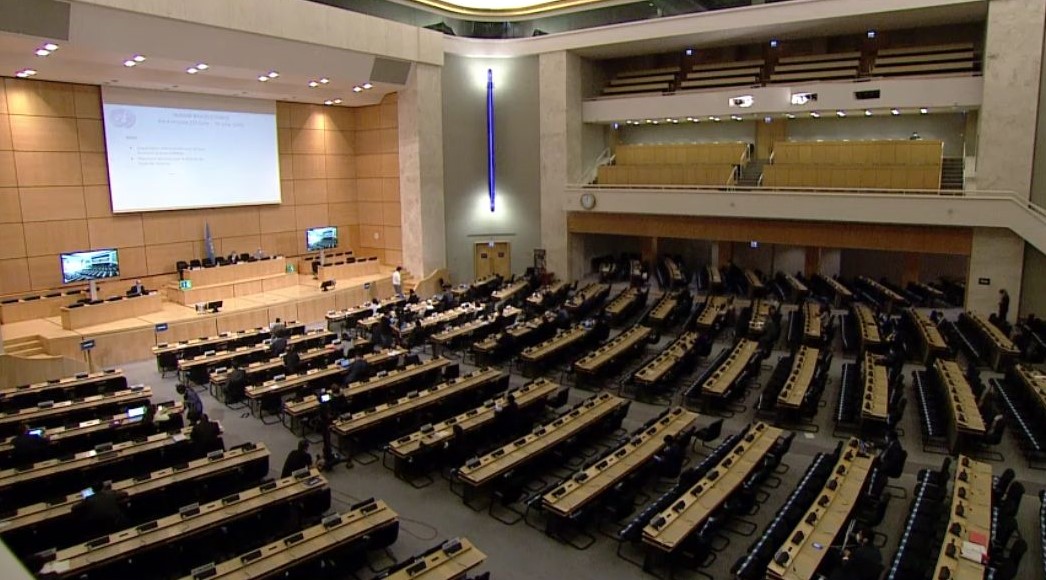
Jun 22, 2021 | News, Publications, Reports, Thematic reports
Venezuela’s judiciary has become a tool for political control of the country by the Executive branch rather than a defender of the rule of law, said the ICJ in a report launched today.
The 55-page report Judges on the Tightrope documents the undermining of judicial independence in the country, due to the political control or influence on the judiciary, and because of the role the Supreme Court of Justice (SCJ) has played in undermining the independence of judges around the country.
“Justice is a human right and it is a fundamental right for the protection of other rights. Without the essential guarantees of the independence and impartiality of judges, we do not have justice. In Venezuela today, the right to justice is not guaranteed, to the extent that we do not have a system of independent and impartial judges,” said Carlos Ayala, ICJ’s vice president.
Venezuela’s Supreme Court of Justice, long controlled by the country’s Executive branch, has overseen a collapse of the rule of law in the country, with some 85 percent of judges holding provisional posts that subject them to political pressure, and courts receiving direct pressure to return verdicts in support of the government and against human right defenders and critics of the government.
“The political takeover of the SJC has placed judges on a tightrope in Venezuela, rendering them unable to defend the rule of law, to provide accountability for the many gross human rights violations in the country, or to protect the rights of the Venezuelan people”, said Sam Zarifi, ICJ’s Secretary General.
The ICJ recommended Venezuela to depoliticize the judiciary in general, and specifically the Supreme Court of Justice. In addition, the report sets a series of specific recommendations to achieve these goals, in particular by:
- Advancing with appointment processes for judges in accordance with constitutional provisions and international standards;
- Establishing independent and autonomous mechanisms within the judiciary for the selection of judges and for exercising of disciplinary functions; and
- Strengthening transparency and accountability in the justice system.
The ICJ called on Venezuelan authorities to comply with international human rights law and international standards related to judicial independence, as well as with the decisions and recommendations that different bodies in the United Nations and Inter-American Human Rights System have made, and allow access to the country for international human rights procedures and mechanisms that will contribute to accountability and the restoration of the rule of law.
The ICJ also urged the UN Human Rights Council to maintain a mechanism to address proper accountability for gross human rights violations until the Venezuelan prosecutors, courts and tribunals are capable of effectively investigating, prosecuting and judging with independence and impartiality those violations.
Contact
Carolina Villadiego Burbano, Latin American Legal and Policy Adviser, email: carolina.villadiego(a)icj.org
Download
Venezuela-Judges on the tightrope-Publications-Reports-Thematic reports-2021-ENG

Jun 20, 2021 | News
On 19-20 June, the ICJ, in partnership with the Tunisian Association of Judges (AMT), organised a workshop on ‘Legal reasoning and judgment drafting in the cases before the Specialized Criminal Chambers (SCC)’ in Tunis, Tunisia.
Twenty-five SCC judges and prosecutors from across the country participated in the two-day workshop.
Said Benarbia, ICJ’s Middle East and North Africa Programme Director; Anas Hmedi, AMT’s President; and Martine Comte and Philippe Texier, ICJ Commissioners, were the main speakers.
On the first day, speakers and participants focused on legal reasoning and interpretation challenges before the SCC.
ICJ Commissioner Philippe Texier spoke about the principles of legality and non-retroactivity, res judicata and the non-applicability of statutes of limitations, which are all recognised under Tunisian law.
Texier underlined that, when properly understood and applied, both the principle of non-retroactivity of the criminal law and the non-applicability of statutes of limitations would not necessarily be a bar to the prosecution of crimes and gross human rights violations within the jurisdiction of the SCC, since international law, including customary international law, already proscribed them at the time of their commission.
Said Benarbia stressed the importance of applying international law and standards, especially with regard to international crimes that Tunisian domestic penal law does not proscribe yet, such as the crime under international law of enforced disappearance. With respect to the hierarchy of norms, he underscored that the Tunisian Constitution clearly recognises that international law and treaties are superior to national law.
As a result, SCC judges are required to have regard to and apply relevant international law and treaties ratified by Tunisia in adjudicating the cases before them. Judges have the power and the responsibility to interpret Tunisian law in light of international law, including, whenever necessary, by filling certain gaps in domestic legislation.
ICJ Commissioner Martine Comte then spoke about the attribution of individual criminal responsibility and modes of liability, procedural guarantees and the rights of victims and the accused, as well as reparations and guarantees of non-repetition. She emphasised that, under the 2013 Tunisian law on Transitional Justice, guarantees of non-repetition are a constitutive and fundamental element of the transitional justice process.
Comte also explained that the doctrine of command responsibility is a well-recognised general principle of international law, established and applied in many jurisdictions, and therefore to be applied, as relevant, in cases before the SCC.
Comte underlined the importance of enforcing and monitoring the respect of procedural guarantees and the rights of both the victims and the accused, including the right to the presumption of innocence, the principle of equality of arms and the right to adversarial proceedings.
She added that the first reparation of all is the establishment of the truth and of the facts of each case, which, in turn, aims to restore the dignity of victims and their families by recognizing the harm they suffered.
Finally, Comte and the other speakers talked about conviction and sentencing and the challenges faced by SCC judges when the sentence is not defined in nor international law nor Tunisian law.
On the second day, expert speakers and participants discussed judgment drafting in cases before the SCC. They discussed how SCC judges, while addressing the challenges related to the complexity of the cases at hand, can ensure organized, clear, and effective judgment drafting, including through the establishment of a coherent judgment outline; and by providing a clear analysis of factual issues and how they should be resolved.
Texier stressed that the SCC are not exceptional in their nature: they are composed of ordinary judges and have to adhere to the standards of fair trial. SCC judgments differ from ordinary judgments in that they carry a historic significance, by establishing a negated truth and contributing to the duty of remembrance, both of which are crucial elements of the transitional justice process.
Said Benarbia spoke of one of the main challenges facing the work of the SCC, namely, the voluntary absence of the accused who do not appear before court despite being summoned. Drawing on examples from other transitional justice contexts, he concluded that in this respect Tunisia is an exception, as the transitional justice process is typically accompanied by a political will that ensures the presence of the accused.
Benarbia also stressed the importance of the presence of the accused before the Court as one of the fundamental guarantees of the right to a fair trial.
Comte underscored the need to comply with the law regarding the admissibility of evidence (e.g., ensuring that a confession has not been obtained by torture or other cruel, inhuman or degrading treatment or by any other coercive means).
She then addressed the need for the judgment to provide a thorough analysis of the admissible evidence presented at trial on which the ultimate decision is rendered in light of the applicable law and stated that, under Tunisian law, the judges’ decision must be based on firm conviction, beyond any reasonable doubt.
Finally, Benarbia presented an outline for judges to rely upon when drafting the first SCC judgments, based on several judgments rendered by international tribunals. He underscored that such a structured and comprehensive outline would help judges in drafting coherent and exhaustive judgements.
Contact:
Said Benarbia, Director of the ICJ’s Middle East and North Africa programme, email: said.benarbia@icj.org phone number: +41 79 878 35 46
Asser Khattab, Research and Communications Officer at the ICJ’s Middle East and North Africa programme, email: Asser.khattab(a)icj.org

Jun 18, 2021 | Agendas, Events, News
On 22 June, the ICJ, Human Rights Watch, the Cairo Institute for Human Rights Studies, the Center for Reproductive Rights and the International Planned Parenthood Federation, with the co-sponsorship of the Kingdom of Spain, organize an online event on the 10th anniversary of the Council of Europe’s Convention on preventing and combating violence against women and domestic violence (Istanbul Convention).
This side event at the margin of the 47th regular session of the UN Human Rights Council has convened expert speakers to illustrate the situation of human rights protection to combat and prevent violence against women in Europe, how the Istanbul Convention has crucially contributed to this goal and the obstacles to its effective implementation.
Preventing and combating violence against women, as well as its causes and consequences, are a priority of the UN Human Rights Council. While UN standards are central to achieving this goal, regional standards have to date provided a key contribution in this field. The Council of Europe’s Istanbul Convention is the most far-reaching international treaty specifically designed to counter violence against women.
On 11 May 2021, the Istanbul Convention turned 10 years old. It is now time to take stock of the achievements that this Convention has contributed to as well as the challenges ahead, including countering the spread of misinformation about the Convention and ensuring states continue to champion its principles and standards.
Women and girls are still suffering the aftermaths of the COVID-19 crisis. The pandemic effects have shown a worrying increase on violence against women. The universalization of the Istanbul Convention is more important than ever because the pandemic has unveiled the “permanent shadow pandemic” that women and girls are suffering around the world.
When: Tuesday June 22nd, 13:00 – 14:00 CEST
Where: Zoom
Language: English
Panelists
- María Isabel Sanchís, Senior Advisor, Office of the Commissioner on Violence against Women of the Government of Spain
- Dubravka Šimonović, UN Special Rapporteur on violence against women, its causes and consequences
- Dame Silvia Cartwright, former Governor General of New Zealand, former CEDAW member, Commissioner of the International Commission of Jurists
- Professor Feride Acar, former chairwoman of CEDAW and GREVIO
- Hillary Margolis, Senior Researcher, Women’s Rights Division, Human Rights Watch
Moderator Massimo Frigo, UN Representative, ICJ
To confirm your participation and receive connection details, please RSVP to Massimo Frigo, email: Massimo.Frigo@icj.org .
Event-Invitation-Side Event-IstanbulConvention-UN-HRC47-final-2021-eng (download the event leaflet)


Jun 4, 2021 | Agendas, Events, News
As part of its work to raise awareness and deepen the understanding about the importance of civil liability for the objective of improved accountability of business-related human rights abuses and access to justice and reparations, the ICJ is partnering with the Bonavero Institute of Human Rights to organize an online symposium.
The symposium is open to practitioners, policymakers, civil society, academics, and students working on these subjects. It will feature two panel discussions on Zoom on 7 June 2021 and 14 June 2021.
Past decades saw an emerging trend towards reliance on civil liability claims to address business-related human rights abuses (e.g., Lungowe v Vedanta and Okpabi v Shell in the UK; Choc v Hudbay Minerals and Araya v Nevsun in Canada; Akpan v Shell in the Netherlands; Jabir and others v KiK Textilien in Germany).
The ICJ and the Bonavero Institute of Human Rights’ symposium will discuss the wider implications of recent jurisprudence and identify the remaining gaps in the law.
The discussions will focus on a range of issues, including 1) the contours of rules on the duty of care; 2) prospects for supply chain liability under the law of civil remedies; 3) parent company liability and complicity under civil law; 4) prospects of access to justice.
Please follow the links below to register separately for each panel. The symposium will also involve a series of blogs by experts in the field to be published by Opinio Juris starting 21 June 2021.
Panel 1 ‘Duty of care and parent company liability’
Day and time: 7 June 2021 at 14.00 – 16.00 BST
To register for Panel 1, please click here
Panel 2 ‘Access to justice and civil claims for business-related human rights abuses: Challenges and opportunities’
Day and time: 14 June 2021 at 14.00 – 16.00 BST
To register for Panel 2, please click here
This symposium is co-convened by Dr Carlos Lopez and Dr Ekaterina Aristova. Please get in touch with the organisers if you have any questions. The symposium is part of the project on civil liability for human rights violations led by the Bonavero Institute and funded by the Oak Foundation.

May 27, 2021 | Advocacy, Non-legal submissions
The ICJ today addressed an emergency Special Session of the UN Human Rights Council on the Occupied Palestinean Territories and Israel, calling for accountability for the serious violations of international humanitarian law and international human rights law committed by all parties.
The Special Session is expected to adopt a resolution to address this situation.
The ICJ statement read as follows:
“Madame President,
May 2021 has witnessed the commission of serious crimes under international law by Israel in occupied East Jerusalem and the West Bank, and by Israel and Palestinian armed groups in the context of the recent round of hostilities in the Gaza Strip. As in the past, the conflict exacted a heavy toll on civilians taking no part in hostilities, including more than 65 slain Palestinian children. Unlike the past, those responsible must be held criminally accountable for these crimes.
The International Commission of Jurists calls on the Council to establish a Commission of Inquiry to investigate serious violations of international humanitarian law and international human rights law committed by all parties with a view to:
- Establishing the facts, documenting, and reporting on alleged violations and abuses of international humanitarian law and international human rights law;
- Collecting and preserving evidence of crimes under international law committed in the West Bank, including East Jerusalem, Israel and in the context of the Gaza hostilities; and
- Identifying all those responsible for such crimes.
This Council should call on all States to cooperate with the ongoing investigation of the International Criminal Court. All States, and any mechanisms of this Council, should cooperate and share relevant information with the Commission of Inquiry.
Thank you.”
Contact:
Massimo Frigo, ICJ UN Representative, e: massimo.frigo(a)icj.org, t: +41797499949










